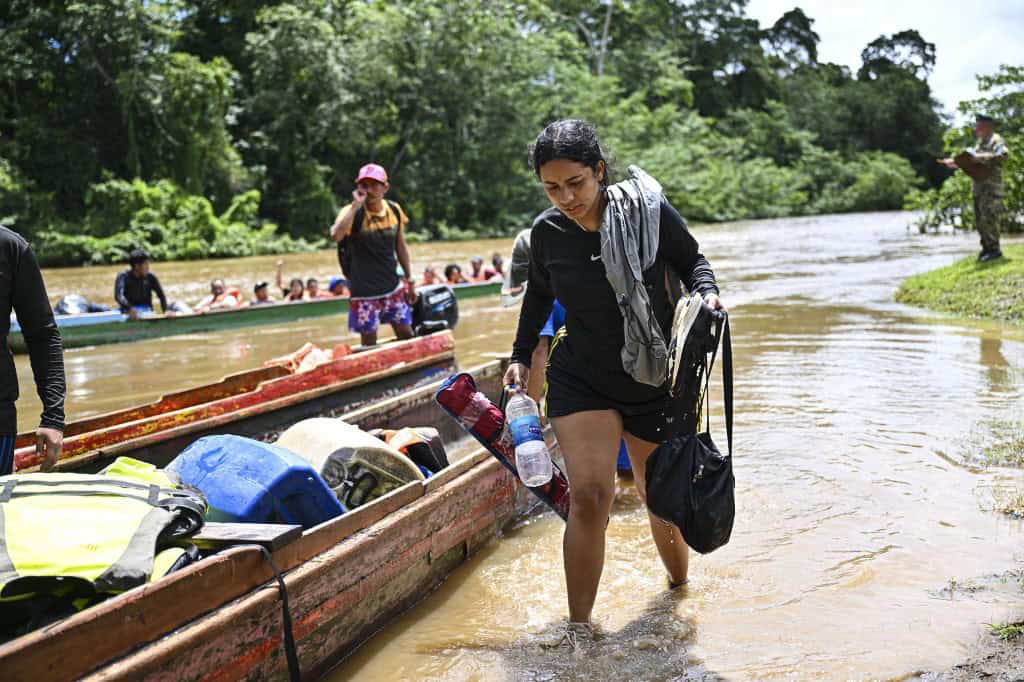Panama confirmed this Wednesday that it has closed some irregular crossings used by migrants to traverse the Darién jungle, bordering Colombia, in order to preserve safety in that inhospitable area where criminal gangs operate. Colombian authorities have criticized the closure of these crossings, stating that it affects “the fundamental rights” of migrants traveling through this dangerous jungle on their way to the United States.
“What we have tried to establish, precisely to respect human rights and ensure their safety, is the creation of a humanitarian corridor” that migrants must use, indicated Panamanian Minister of Public Security, Frank Ábrego.
This “humanitarian corridor” guides travelers to the Lajas Blancas area, “where they are assisted by organizations such as the International Red Cross, National Red Cross, UNICEF, UNHCR, and others,” added the minister. Additionally, in Lajas Blancas, migrants board buses that take them to Costa Rica to continue their journey.
In 2023, more than 520,000 migrants passed through the Panamanian jungle, despite dangers such as fast-flowing rivers, wild animals, and criminal groups. This year, around 200,000 people, mostly Venezuelans, have already crossed the jungle.
The new Panamanian president, José Raúl Mulino, has promised to close the passage through the Darién and repatriate irregular migrants, under an agreement signed on July 1 with the United States. This agreement includes a contribution of six million dollars from Washington to fund the repatriations.
Ábrego stated that the closure of these crossings allows Panamanian border police patrols (Senafront) to maintain security in the jungle, where criminal gangs rob, rape, and kill migrants.
On Friday, the Colombian Ombudsman’s Office stated that the closure of three unauthorized border crossings ordered by Panama “will increase the backlog” of migrants in the inhospitable jungle.
Images released by the Ombudsman’s Office show dozens of people stuck in the mud and thick vegetation on the Colombian side of the border, facing barbed wire guarded by Panamanian uniformed personnel.
In an apparent response to Colombian criticism, Ábrego stated that “there is no joint migration post between Panama and Colombia in the border area. Consequently, there is no need to consult the neighboring country to close migrant crossings.” The United States, heading into an election where migration is a key issue, announced in June that it will send a specialized unit to the Darién to combat human trafficking.






